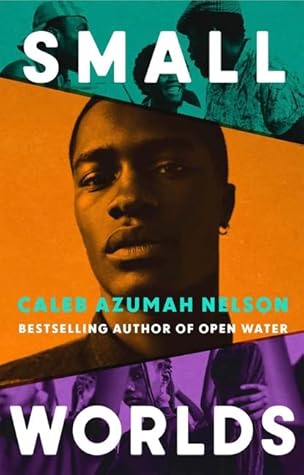More on this book
Community
Kindle Notes & Highlights
we turn our mourning into movement.
a world can be two people, occupying a space where they don’t have to explain. Where they can feel beautiful. Where they might feel free.
Many of us gathered have long lost our faith but we do believe in rhythm.
she knows my rhythm, even when I’m still.
We’re young and often struggle to express just what it is we need, but I know we all value closeness.
know that a world can be two people, occupying a space where we don’t have to explain. Where we can feel beautiful. Where we might feel free.
Because it’s summer, and we’re all young until September,
What becomes of time when summer arrives?
food is not just sustenance but memory, nostalgia; a way to quell longing, a way to build new foundations.
Auntie understood that anger was a necessary emotion but often it was misdirected; and its misdirection was how the death we knew in multitudes multiplied further, and much of this misdirection emerged from not having space.
not because we didn’t think we would remember, but because we didn’t want to forget.
It made me grateful for the freedom to be in that space, to make a mistake; and how that mistake might be beautiful to the right ear;
It was there that I noticed I only really knew myself in song. In the quiet, in the freedom, in the surrender.
not quite adulthood, but that place between, where anything seems possible
I look for distractions, worried the memory of our closeness might consume me, might become all I’m interested in. I float, going from room to room.
quick, yet in the right circumstances, stretching on and on. The beach was one of those places where time would stretch,
She’s somewhere between memory and the present, somewhere between then and now.
I don’t know how to say this to Del, so I let the music fill in the gaps where I have failed,
not because I don’t remember, but so I won’t forget.
I want to build a place where there’s a sense of freedom which isn’t attached to anything else, that doesn’t come as part of a transaction.
There would be no catch. Just a place for people to eat and drink, to plot and breathe. To be. A place we could call home.
felt less like she was retreating into herself, and more like she was going forward, expanding her world.
this word means tired. But not the kind which sleep might solve, no; the translation is to be tired to the depths of your being. His face contorts and I know he’s about to cry. I slide my
Hunger has taken me. I’m weary to the depths of my being.
how the feeling of freedom I have with her lasts long after we’ve separated.
the moment becoming its own forever.
It feels arbitrary to rely on a sequence of letters and numbers to decide we are good enough, when, up to this point, much of our judgement relied on feeling.
This phenomenon spreading like a virus, like contagion, that asks us to stop considering our people and community, and only think of value; value that can be rendered in words and numbers, can be exchanged with a signature.
It asks us not to think of people but property.
I don’t feel like myself, or rather, I don’t like this version of me, who’s insecure and rarely at ease, who doesn’t know how to dismantle his loneliness.
this feeling of being on the sidelines of my own life.
I cocoon, retreat, and the solitude I first take comfort in becomes oppressive.
I feel tired inside, my spirit worn out by the effort it took to hope and dream, to believe, to imagine myself a future in which I could choose something for me.
I’ve only known myself in song, in the space between the sounds we make to capture our quiet.
anger is so close to love,
to sleep with grief is not to sleep at all. When
rice ready to miracle itself from pebble to pillow, the patience required its own process. I
Grief never ends, but we find a way to walk in the light someone has left behind, rather than living in pain’s shadow.
that this new world I’m walking out into, this new world I’m building for myself, I ask that it be constructed from peace.
I let a record play front to back. I’ve taken to relistening, because, like the moments of our lives, it’s impossible to take everything in the first time.
Mum always says my Ga has come in a suitcase, like I’m a visitor in my own language.
For Mum, every trip back home is an endeavour, in which she finds herself wrangling with who she is against who those back home think she should be.
Remind us that dreaming is difficult when we feel like we’re so close to death.
It feels counterintuitive to rely on a small group to decide what’s good enough, to teach us how to express ourselves, when our chosen modes of expression rely on improvisation in the moment, rely on feeling.
That I’ve loved her since we were young. I loved her when we’d head up to central and the laughter was the spine of our days. I loved her every time I walked her home. I loved her when she was in motion, when she was still.
Sometimes, silence in the face of trauma is useful. It allows time for those grieving to mourn, to organize, for a feeling to lose its haze and ossify, and to try to give words to what has been done unto us.


